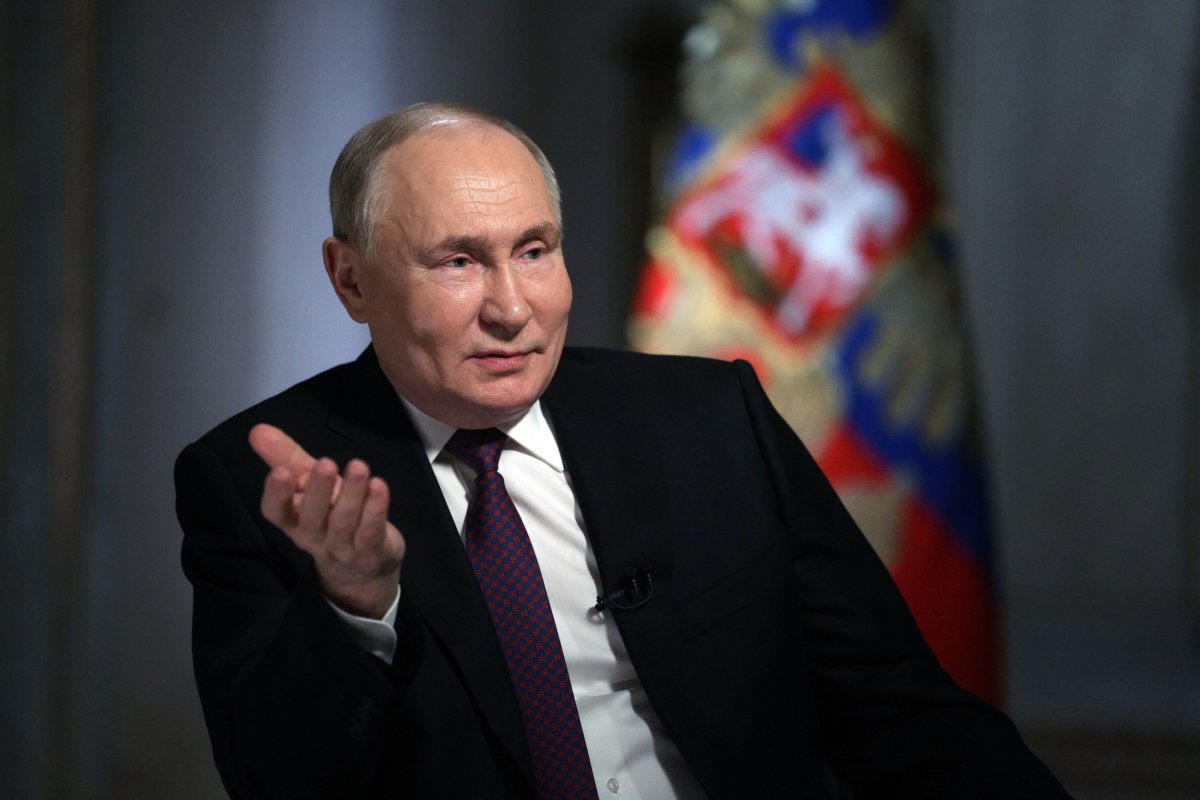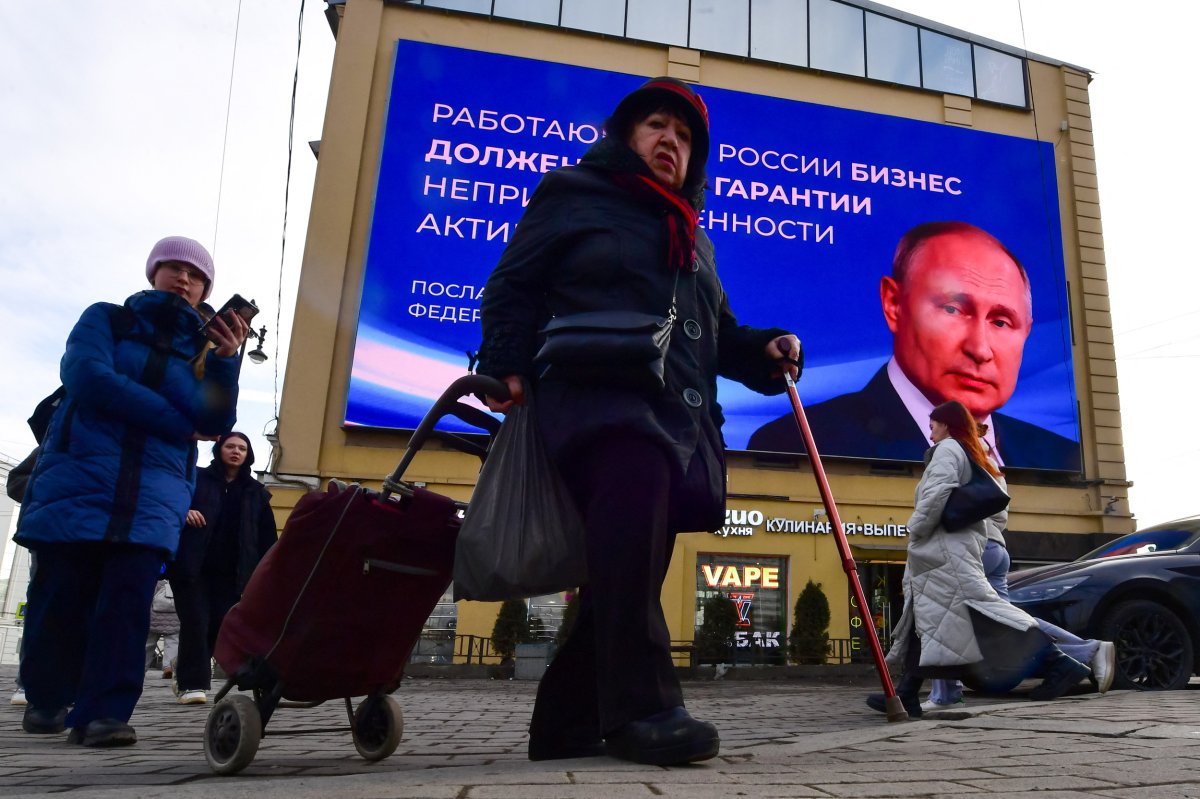Ahead of an election he is sure to win, Vladimir Putin last month described budget priorities between now and 2030—a term 12 months longer than the 5-year plans initiated by Joseph Stalin, whose record tenure as Kremlin leader he is set to overtake.
While Putin did not use his leap year day address to announce any great leap forward, he told the Federal Assembly more about social programs than he did about the war in Ukraine, which is becoming a central organizing principle of the economy, and his rule.
These plans included tackling the demographic crisis, with Putin saying he wanted life expectancy in Russia by 2030 to hit 78, which will be his age if he makes it to the end of a term experts say could see greater repressions, an economy struggling further and a grab for more of Ukraine and other countries.
Economy
The exchange rate of around 90 rubles to the dollar means Putin’s spending plans have a lot of zeros—up to 15 trillion rubles ($164 billion) between now and 2030, according to Bloomberg.
This includes 1 trillion rubles ($10.9 billion) for hospitals and 400 billion rubles ($4.4 billion) for schools and kindergartens. But in a country with a population of around 140 million, Putin’s outlay projections may have more noughts than oughts.
“2024 is the first year since the Soviet Union when military and police budget combined, is bigger than the social budget,” said Russian opposition politician Aleksei Miniailo, referring to how defense will be one third of Russia’s government spending for this year.
“He sees that people are very tired of the war, few Russians have a consistent position of support for the war and that they want the government to concentrate on home affairs,” Miniailo told Newsweek. “Putin wants to make it appear as though he is paying more attention to home affairs, but actually that is not the case.”
Miniailo co-founded Chronicles, a group of sociologists that conducts independent polling which found in January most Russians, 83 percent, want Putin and the government to focus on domestic affairs.
“Putin is pulling more people to the front lines, bringing more people into the military economy,” he said. “The domestic economy is suffering hugely because of this.”
NATO, the West and Ukraine
Putin used his address last month and an interview released on Wednesday to state outlet RIA Novosti to rail at the West. In the latter, he said Russia was ready to use nuclear weapons and slammed the U.S. election, which could see a return to the White House of both Donald Trump and the questions about his Kremlin ties.
“The biggest and most consequential wild card is what happens in the 2024 U.S. election,” said Ken Osgood, history professor at Colorado School of Mines, noting the signaling of Trump and the MAGA wing of the GOP to end the war in Ukraine quickly.
“A withdrawal of U.S. support and American pressure on Ukraine to negotiate will mean a victory for Putin. Even if he only holds the territory Russia presently occupies, Putin will credibly claim it as a win,” he told Newsweek. “The consequences of such a course will be felt for years.”
“Does this mean Putin will invade Poland or start a war with NATO? It’s not particularly likely. Even if the U.S. backs out of NATO, it is still a formidable and nuclear-armed alliance—direct attack that would trigger a massive response would be foolhardy.”
However, Putin is likely to launch aggressive cyber and information warfare tactics to provoke divisions within the alliance, he said. “Putin will likely try to advance the fortunes of politicians friendly to Russia, such as Hungary’s Viktor Orban and let’s be clear, Donald Trump.”
John Lough, an associate fellow of the Russia and Eurasia program at the Chatham House think tank said that another six years of Putin rule will see the country become “increasingly bleak.”
“Putin, in the view of many Russians, deprived them of a future and I think that’s something that’s going to become much clearer over the next probably five to 10 years—the hole that he’s dug and Russia has fallen into,” Lough told Newsweek.
“Putin’s hope is the West will crack and that he can salvage victory of some kind in Ukraine,” he said.
The U.S. moving away from Europe and NATO becoming less effective could be areas “he will no doubt point to as the fruits of his labors,” Lough added. “But this country is going to become increasingly isolated, increasingly unattractive.”

GAVRIIL GRIGOROV/Getty Images
Putin has rejected as “complete nonsense” the claims by President Joe Biden that he has his eye on other countries after Ukraine, but it is unclear what the Russian leader might try to present to his people as a victory if the war stops.
“I don’t think Putin wants to take all of Ukraine as long as the costs are too high,” Mietek Boduszyński, a former U.S. diplomat who has served as a Pentagon policy adviser, told Newsweek.
“Rather, Putin will seek to maintain the parts of Ukraine Russia currently controls as Russian enclaves, thereby hoping to keep Ukraine divided, weak, and less likely to enter NATO or the EU,” he said.
“I don’t think Putin wants to start a full-scale conventional war with NATO, but he does want to continue to find ways to drive a wedge into the alliance and use tools like disinformation and cyberattacks to wage alternative war on NATO countries,” added Boduszyński, an associate professor at Pomona College in Claremont, California.
Greater repressions
Putin may feel he is having a run of recent good luck, having headed off a mutiny from Wagner mercenary head Yevgeny Prigozhin and seen his forces gain momentum on the battlefield. Also, the death Alexei Navalny has marked the end of the country’s most renowned opposition figure and a further clampdown on dissent could be expected.
“What one could expect inside Russia is more repression, even more efforts to cut off information that’s against the regime’s message, and that could take a variety of forms in terms of access to social media platforms,” said Brian Taylor, author of The Code of Putinism.

“The trajectory has been pretty much one way for 24 years and it’s in the direction of less freedom and more repression,” Taylor, a politics professor at Syracuse University, New York, told Newsweek.
However, Putin’s likely victory does not necessarily mean an untroubled 6-year term, especially as the impact of the sanctions continue to buffet the Russian economy and the war’s huge personnel losses, such as in Avdiivka, exact a huge cost on the population and could threaten Putin’s rule.
“If you do this five more times, then it will add to an already acute strain on Russian society,” said Konstantin Sonin, a Kremlin critic and economics professor at the University of Chicago Harris School of Public Policy.
“I do not think that there is any importance to the election,” he told Newsweek. “Mikhail Gorbachev lost his power as president of the Soviet Union in his first year. Putin is not safer just because he gets another term— every year has the same danger for him.
“There is no way out for Putin, he cannot stop the war, he cannot stop the repressions.”
Uncommon Knowledge
Newsweek is committed to challenging conventional wisdom and finding connections in the search for common ground.
Newsweek is committed to challenging conventional wisdom and finding connections in the search for common ground.


